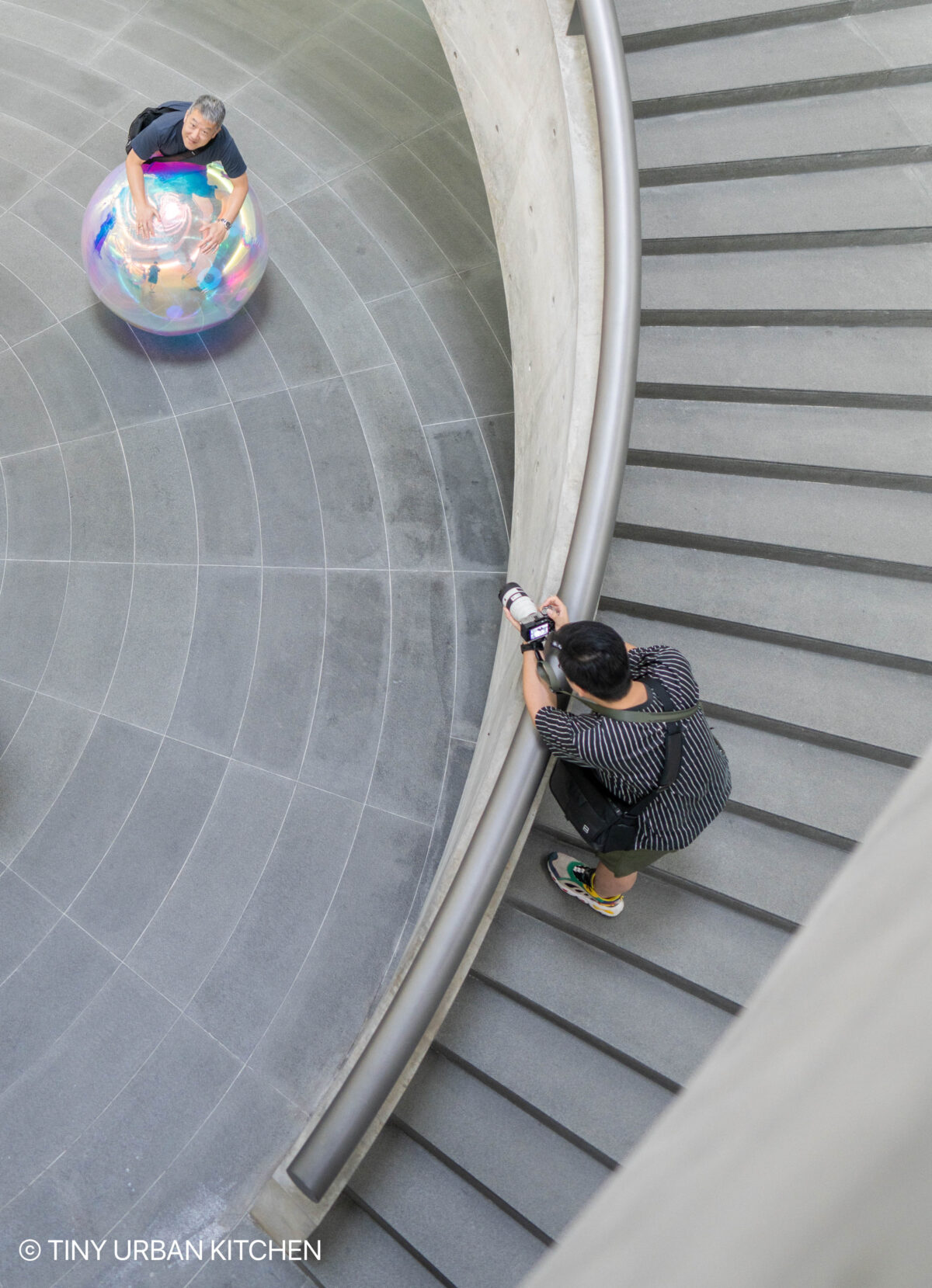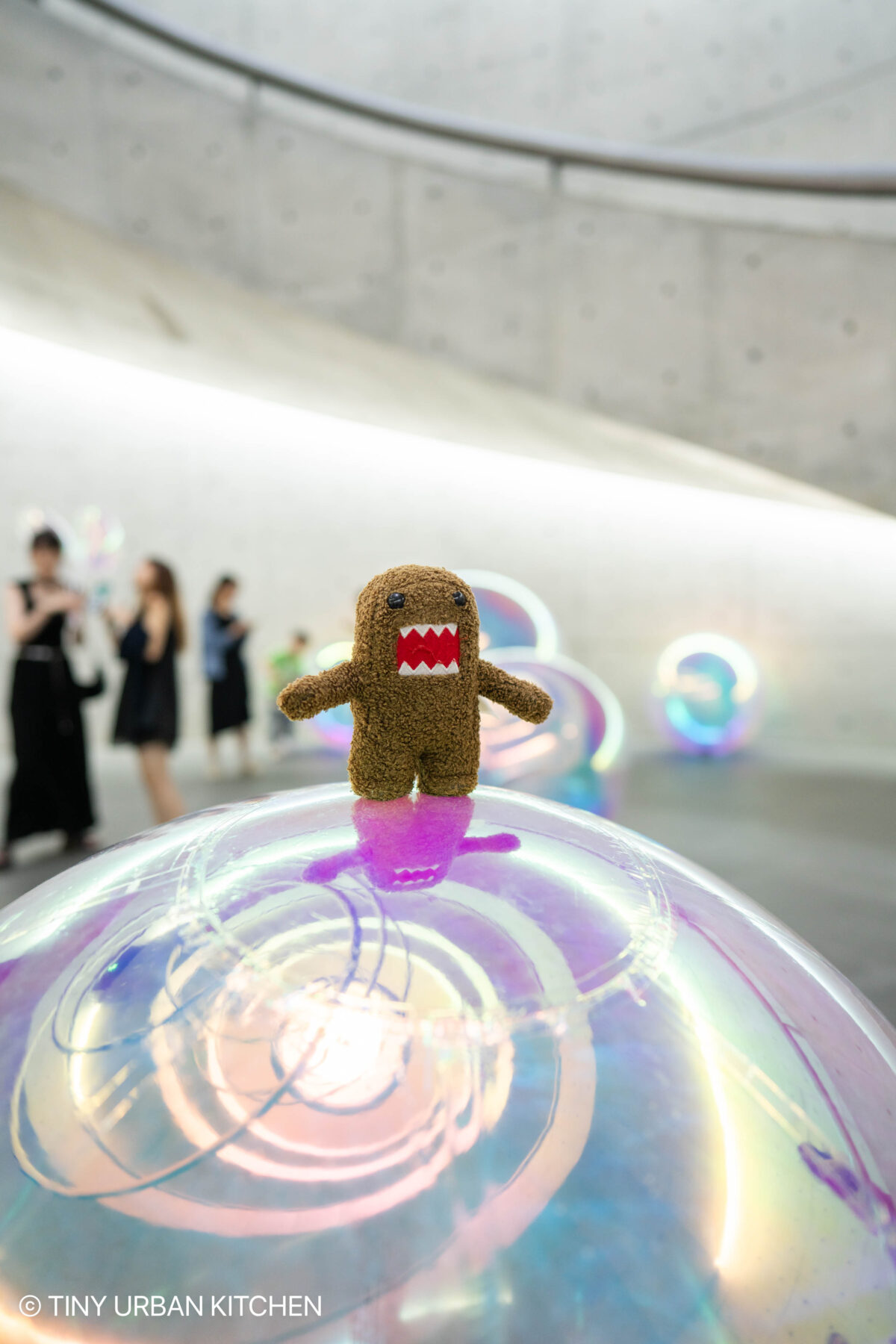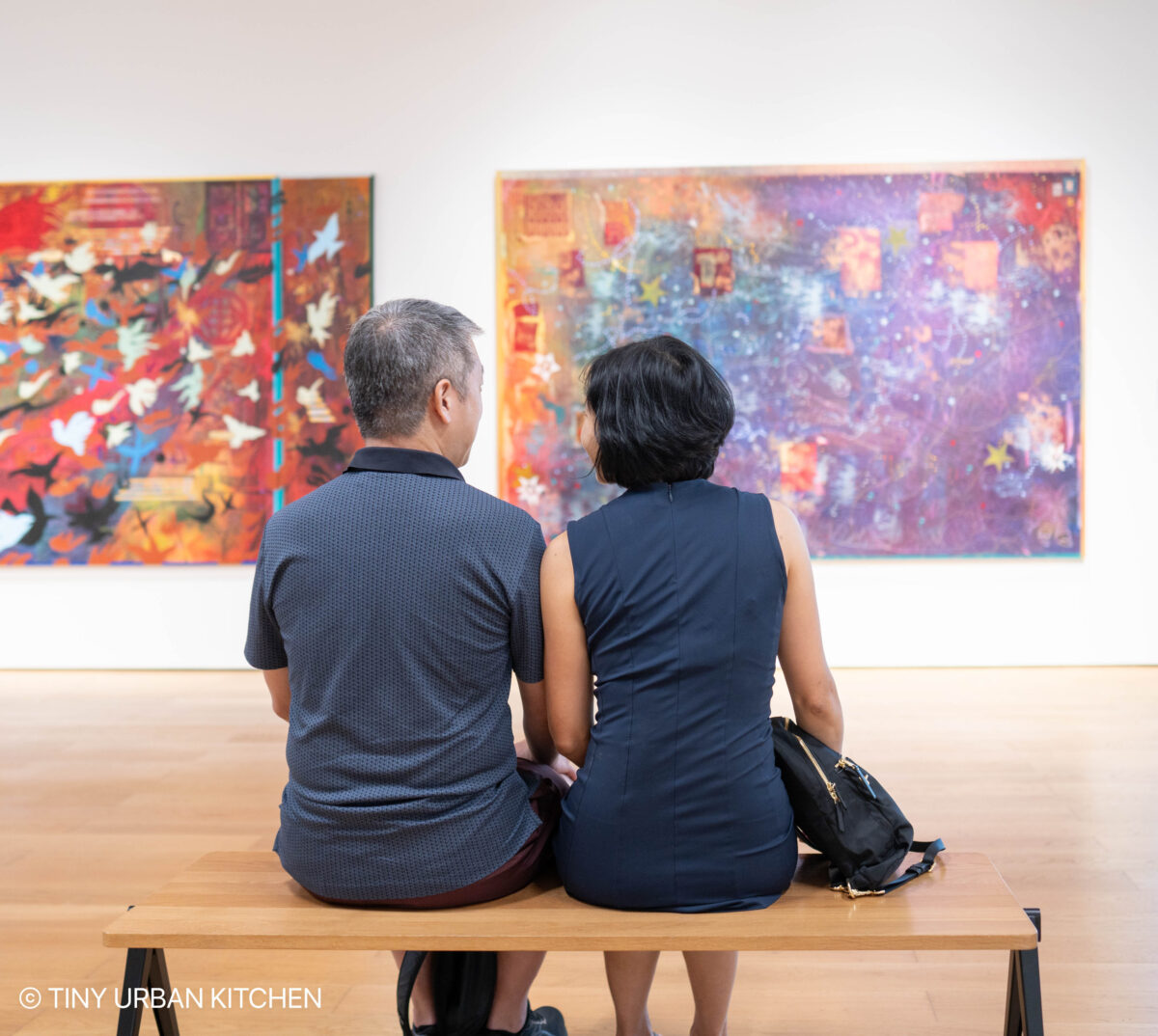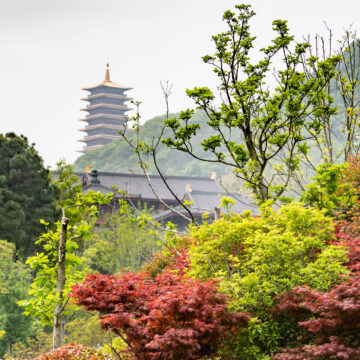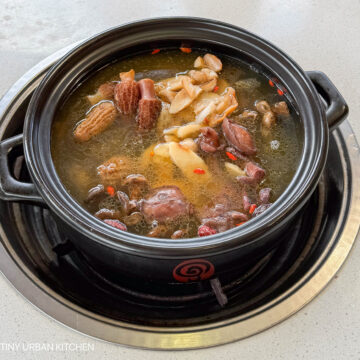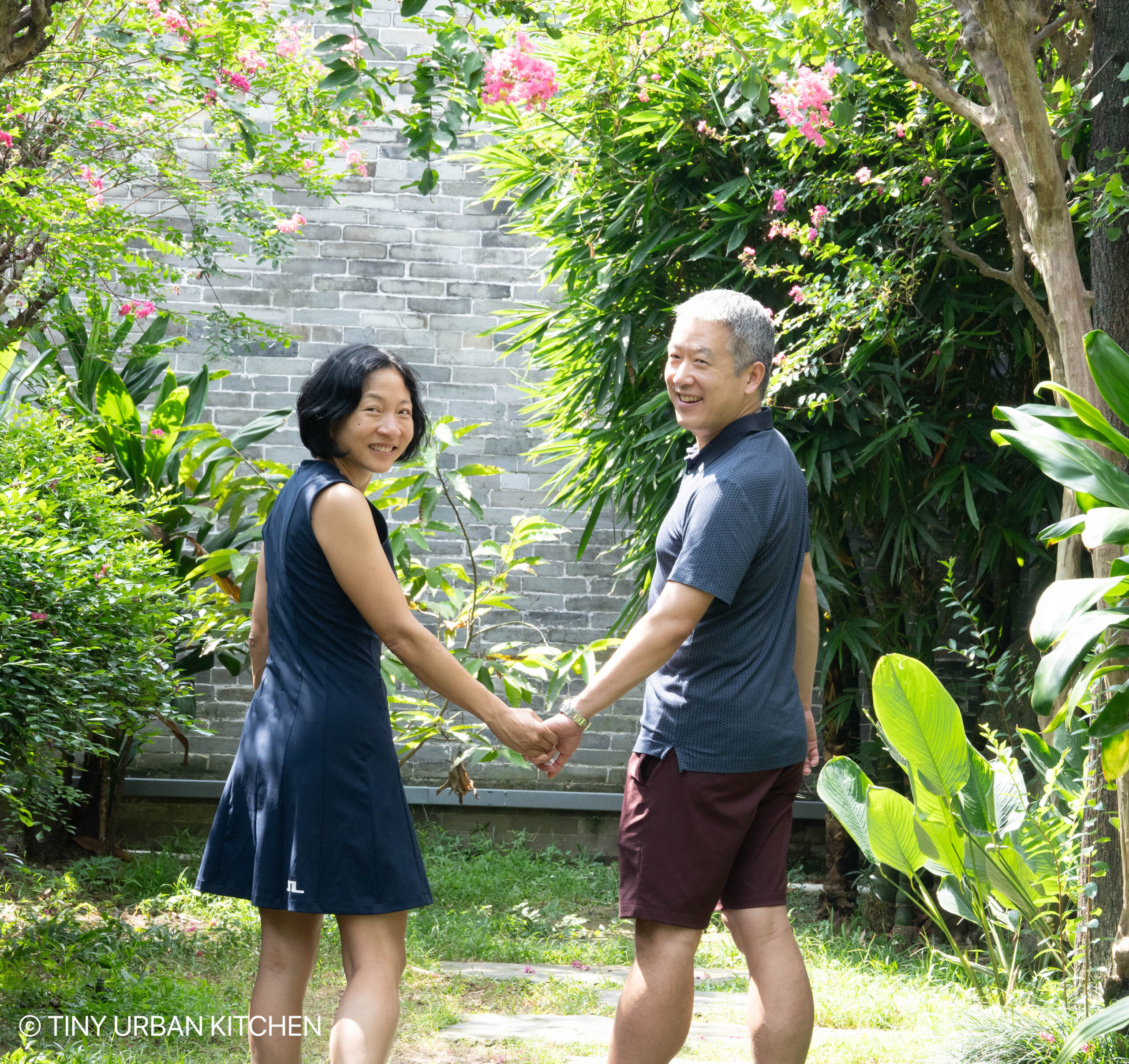
They say Cantonese food has three main roots: Chiu Chow (chaozhou), Hakka (kejia) and Shunde (pronounced SHUN - Duh). Many say that the origins of Cantonese food comes from this small but packed region full of incredible food.
In 2014, Shunde was recognized by UNESCO Creative Cities Network as a city of gastronomy. To be honest, while I was living in the States, I had never heard of Shunde, much less Shunde cuisine. But here in Hong Kong, everybody knows it. If you say you are going to Shunde, it's certainly because of the food.
1. Roasted Pigeon + Clay Pot Rice
So we technically ate our first bites of roasted pigeon in Zhongshan, a large city across the bay from Shenzhen that just got connected via a loooooong bridge (the Shenzhong Cross Harbour Bridge) that reduces the travel time between the 2 cities from 2 hours to 30 minutes.
Zhongshan is known for its pigeon, and we saw many places selling it the moment we crossed the bridge into this neighboring city.
Clay pot rice is another speciality (we see it in Hong Kong a lot too!).
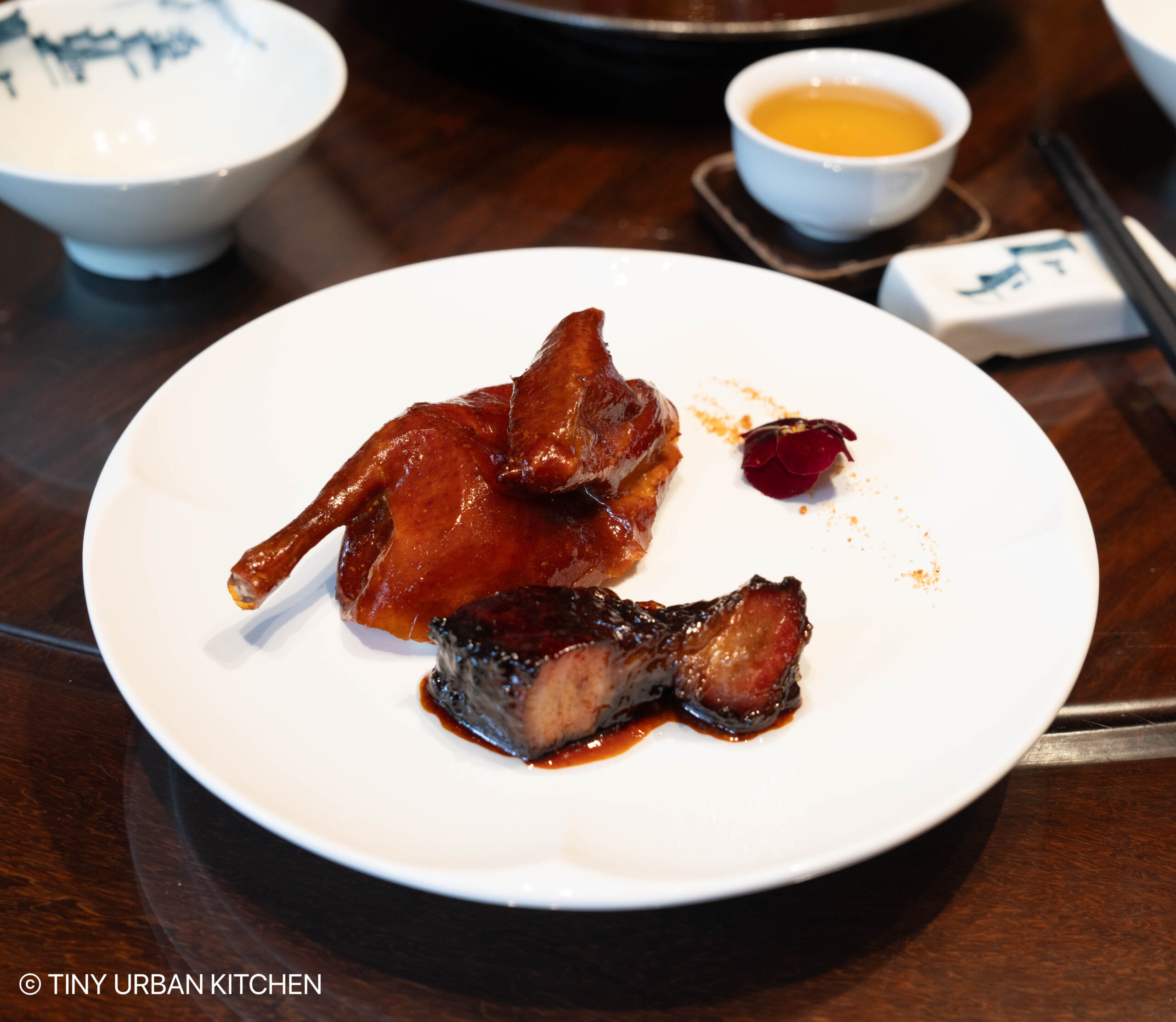
2. 魚生 Raw Fish Salad
Out of everything I ate in Shunde, this raw fish salad was by far the most unique and also my favorite. Shunde’s famous raw fish salad, known as Shunde Yu Sheng (順德魚生), typically features thinly sliced raw freshwater fish, such as grass carp (鯇魚) or mandarin fish (鱖魚), which are prized for their delicate texture.
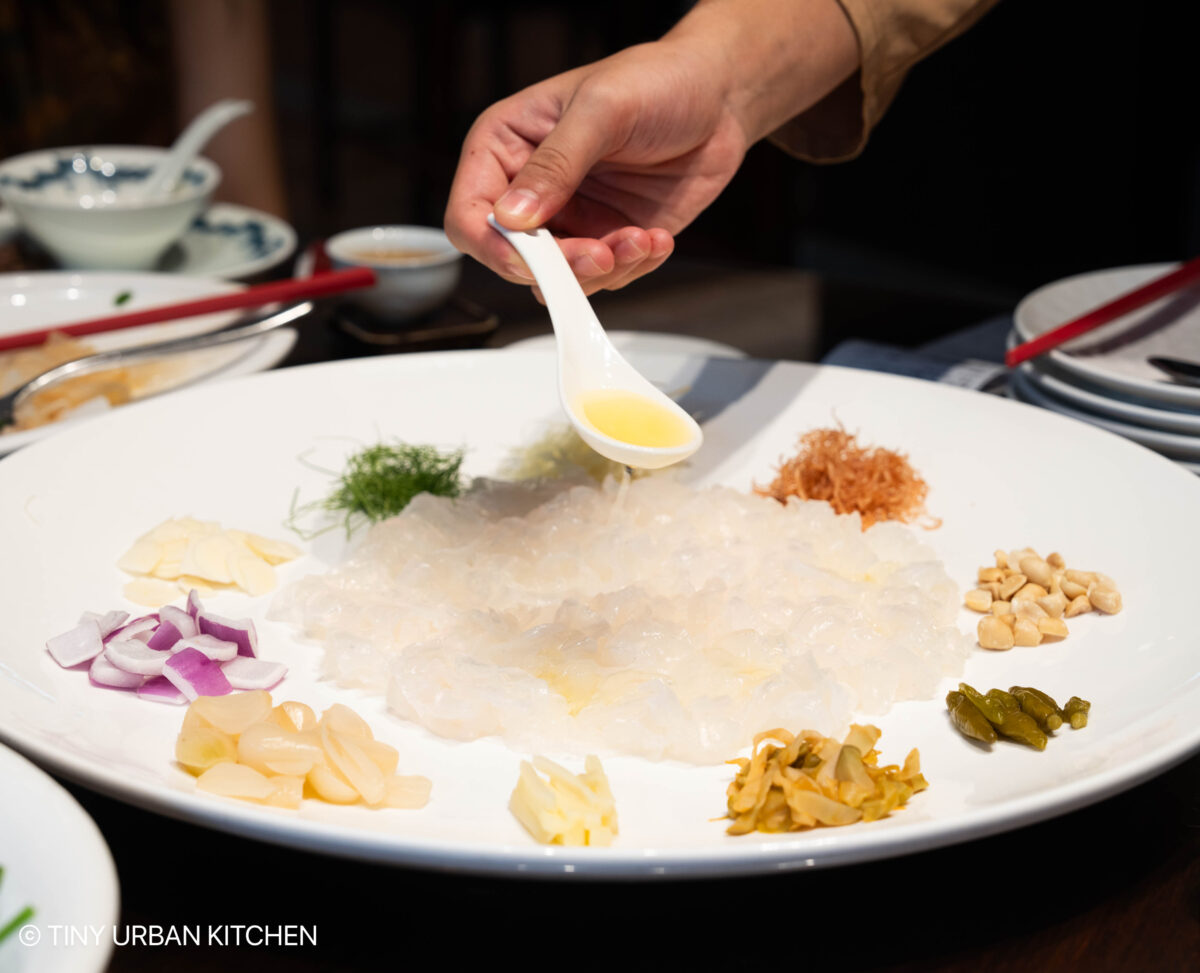
The fish is arranged on a platter and served with a variety of fresh, colorful accompaniments like ginger, garlic, onion, pickled shallots, pickled turnip, chili, lime leaf, and wok roasted peanuts.
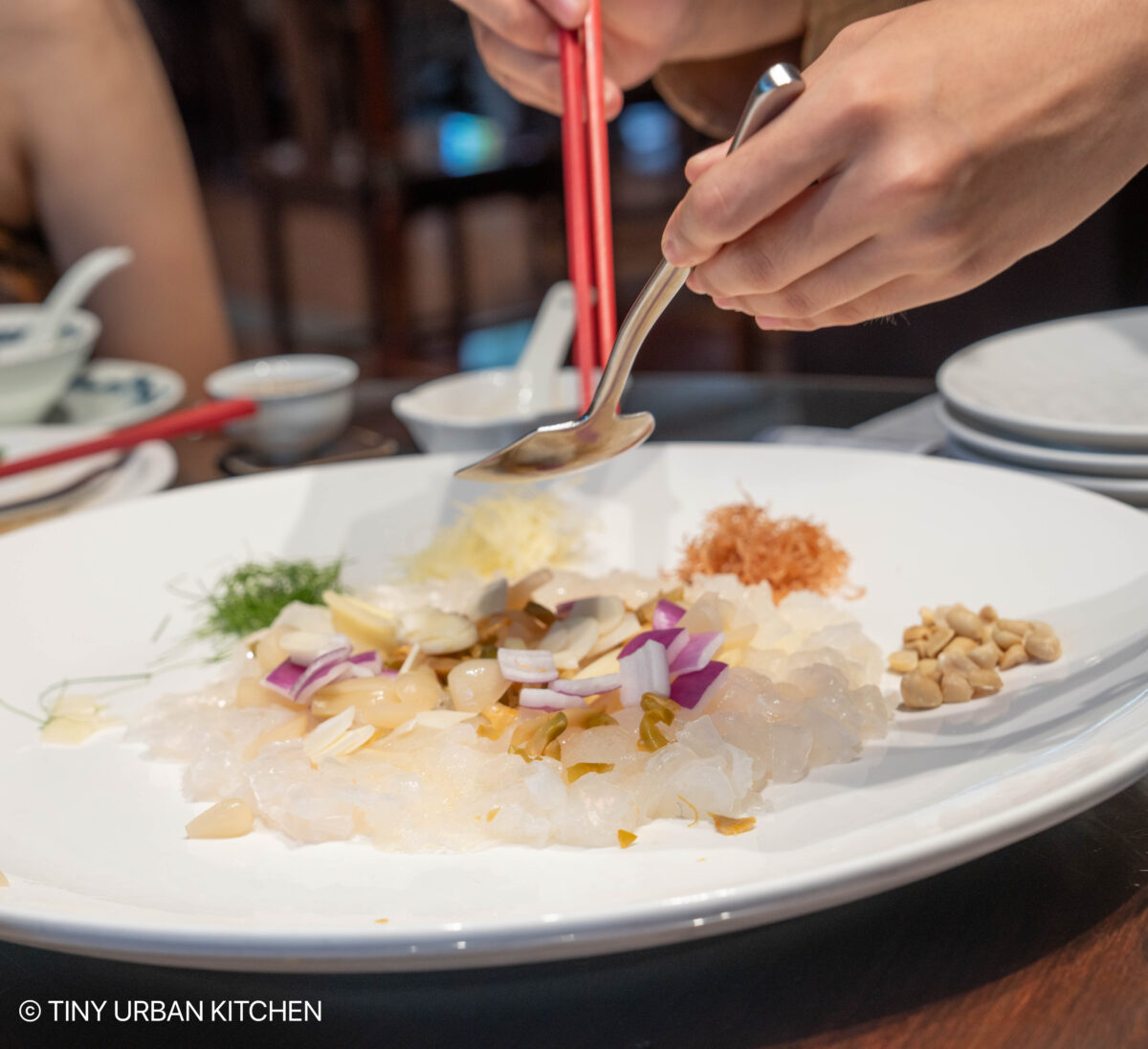
These ingredients provide an amazing contrast of flavors and textures, from acidic and spicy to crisp and fragrant. All of this is tossed together in peanut oil, which I fell in love with! I really need to buy some peanut oil and try my hand at making a version of this salad.
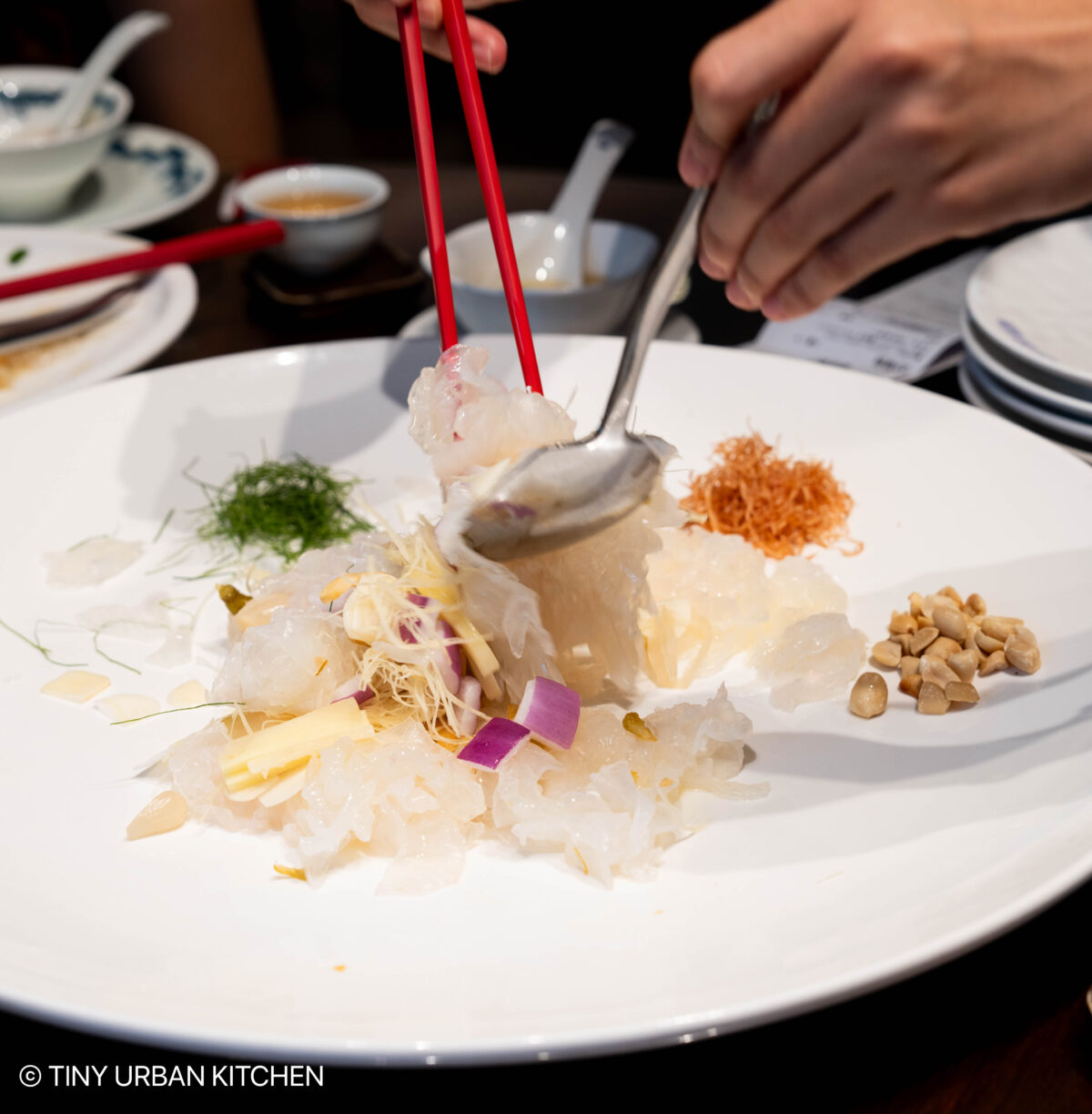
The server tosses all the ingredients together for you, table-side.
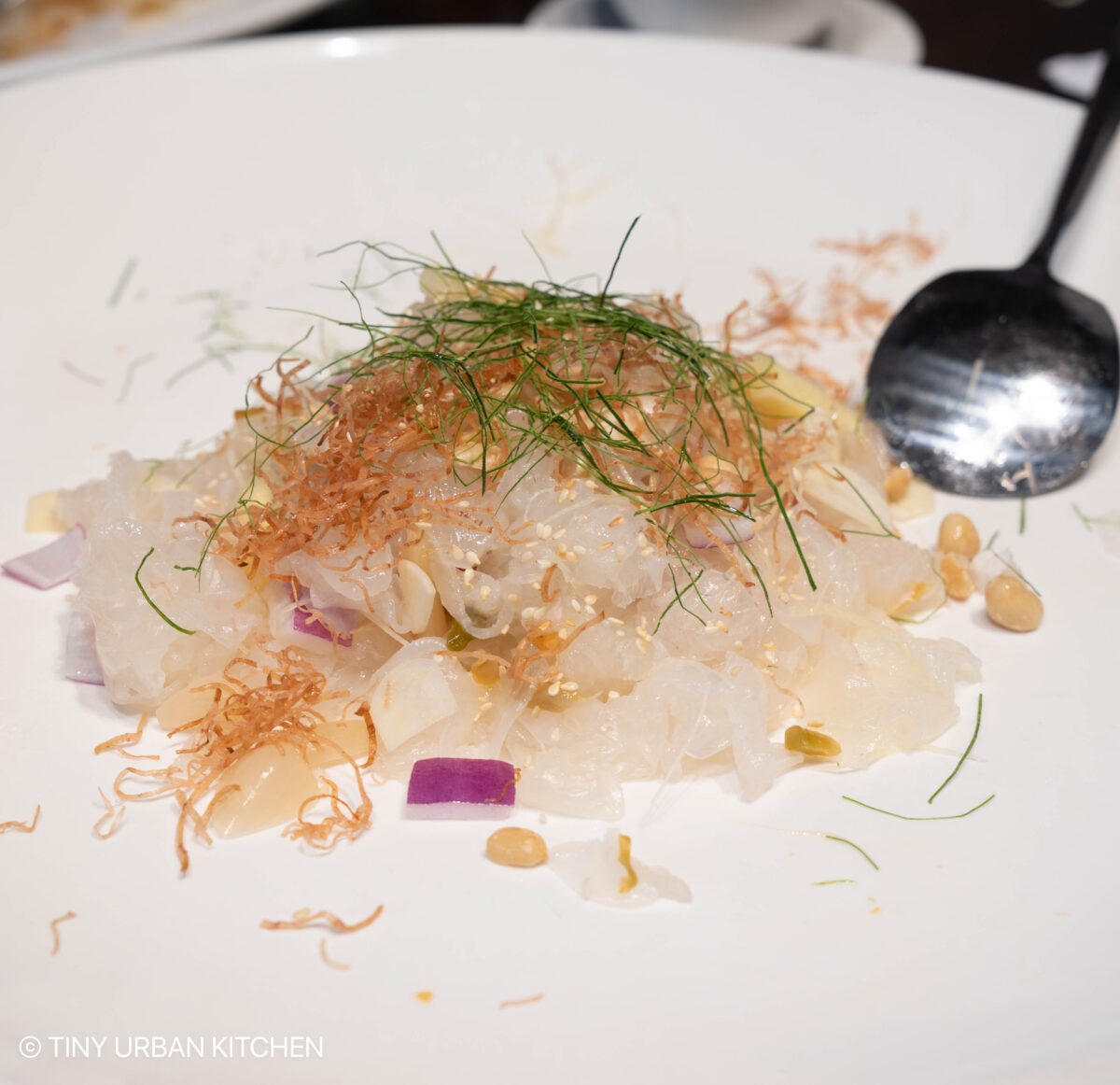
In some ways it reminded me of Burmese Tea Leaf Salad (which I also LOVE), but with a ton of crazy fresh raw fish and more Chinese flavors.
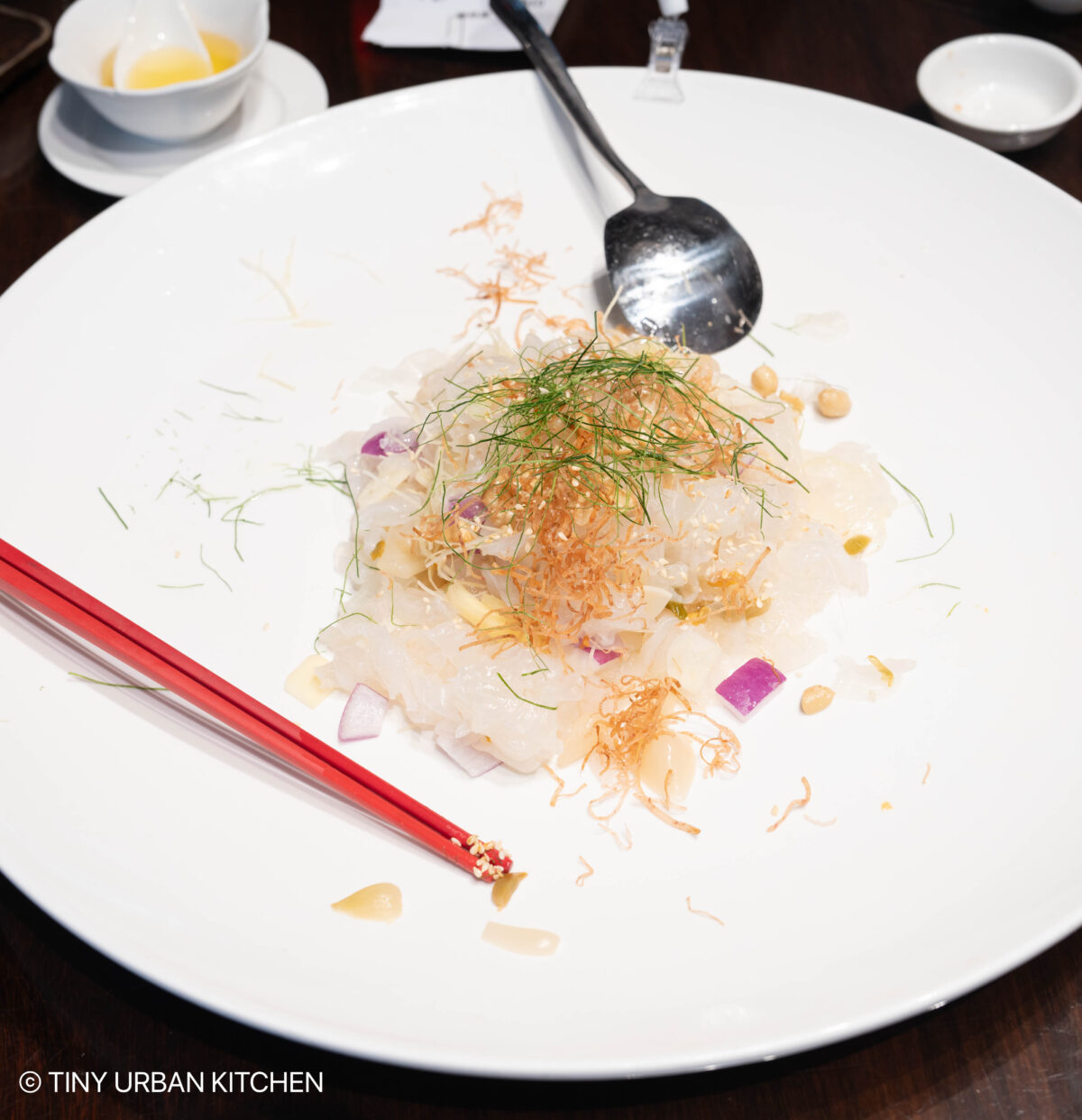
I loved this dish, and I would go back to Shunde just to have this. The restaurant is called 居然果(Ju Ran Guo) inside of He Garden (和园). The ambiance was beautiful, the service was excellent, and (most importantly), the food was very fresh and absolutely delicious.
Other dishes from 居然果(Ju Ran Guo)
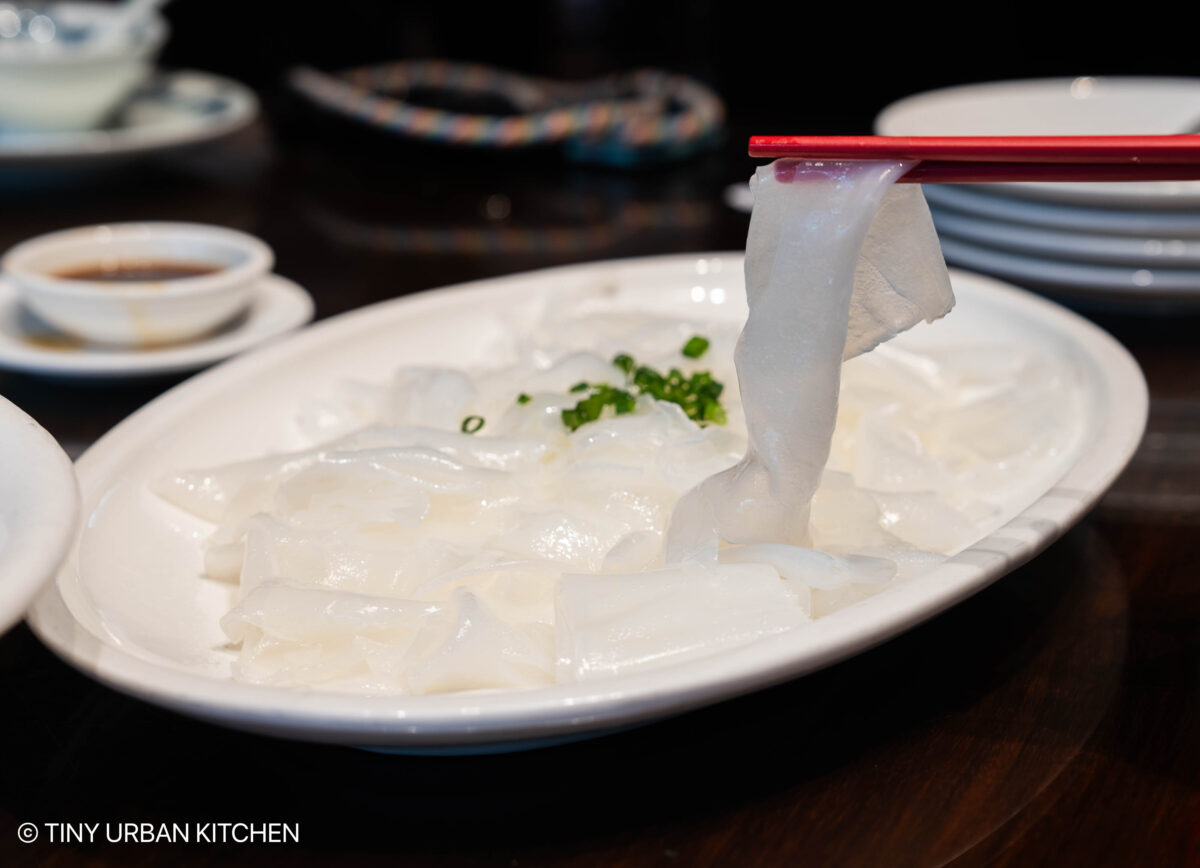
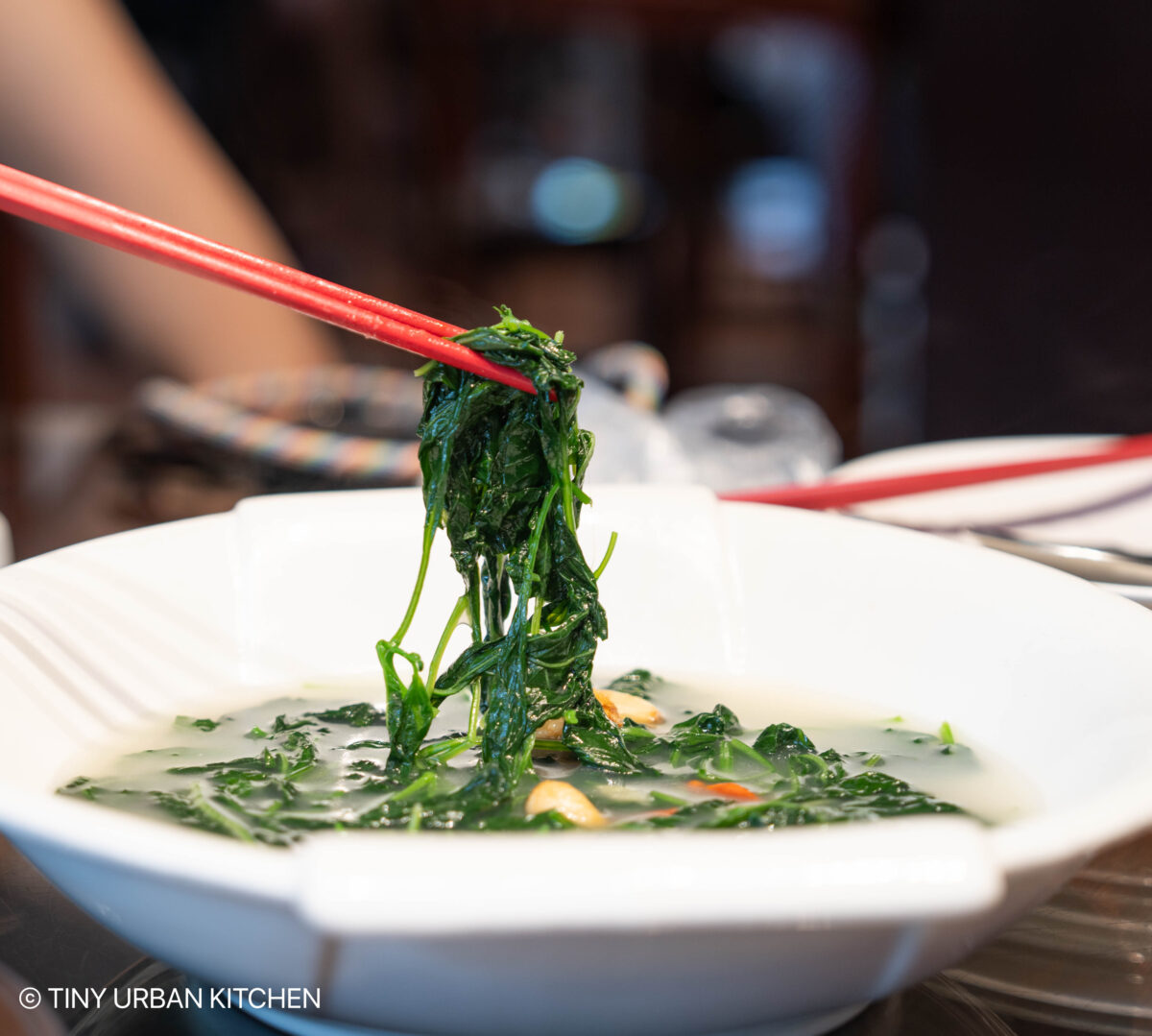
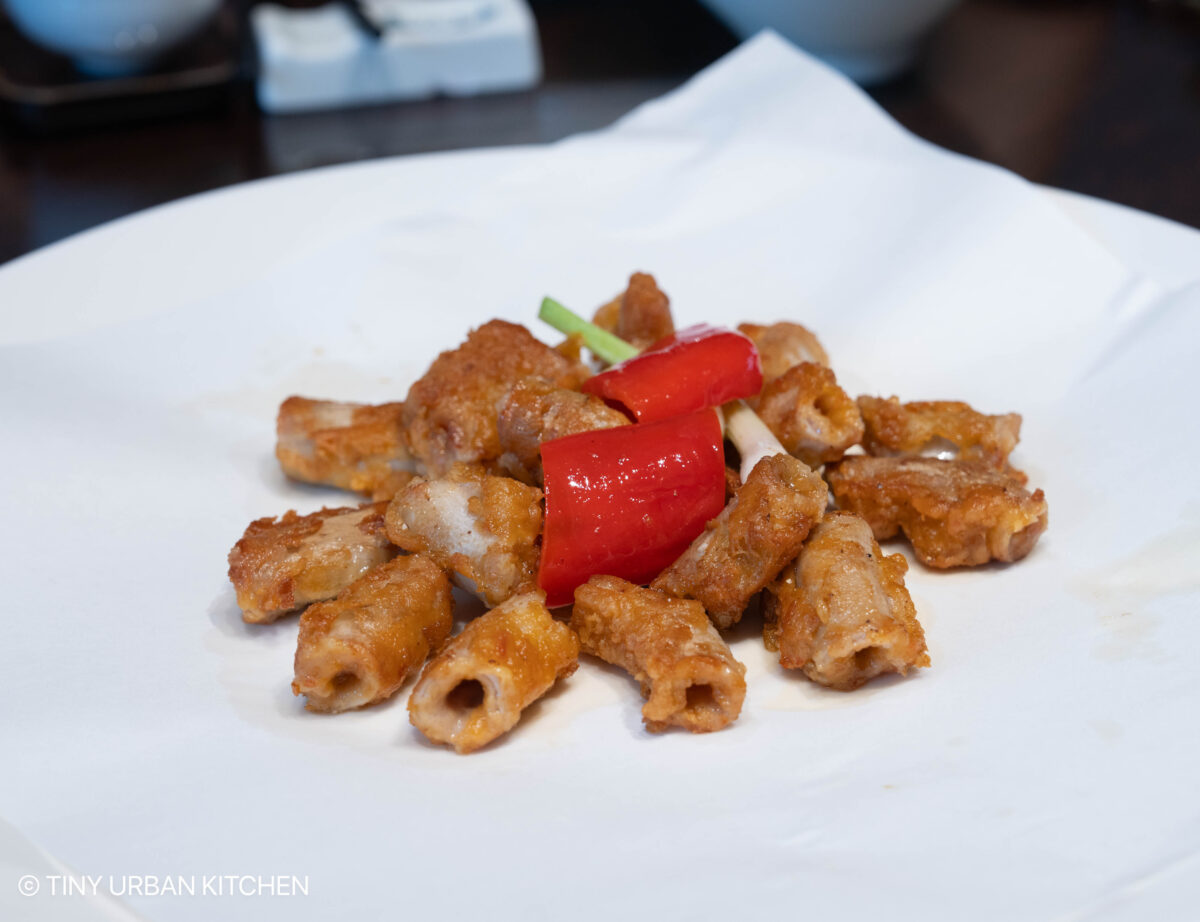
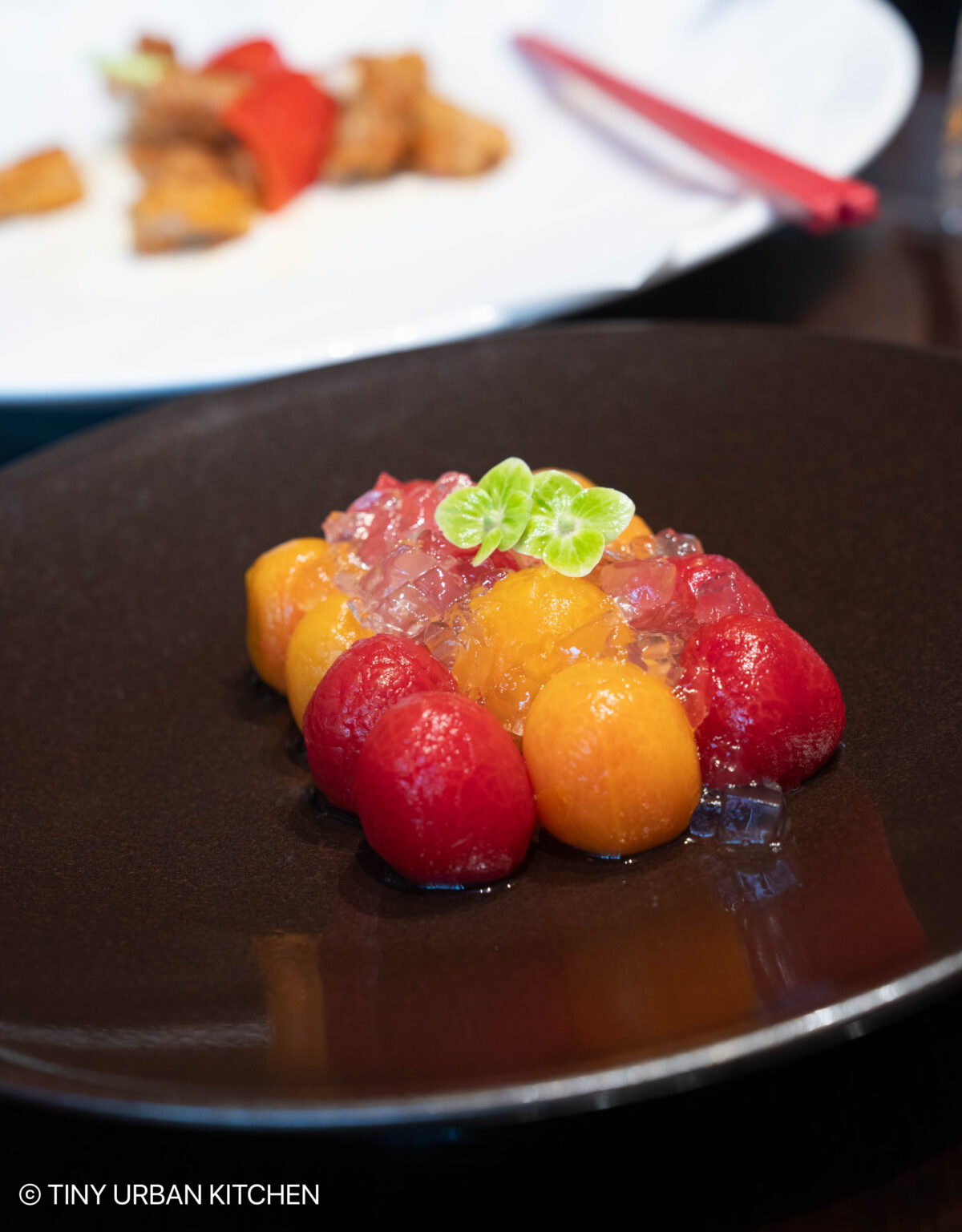
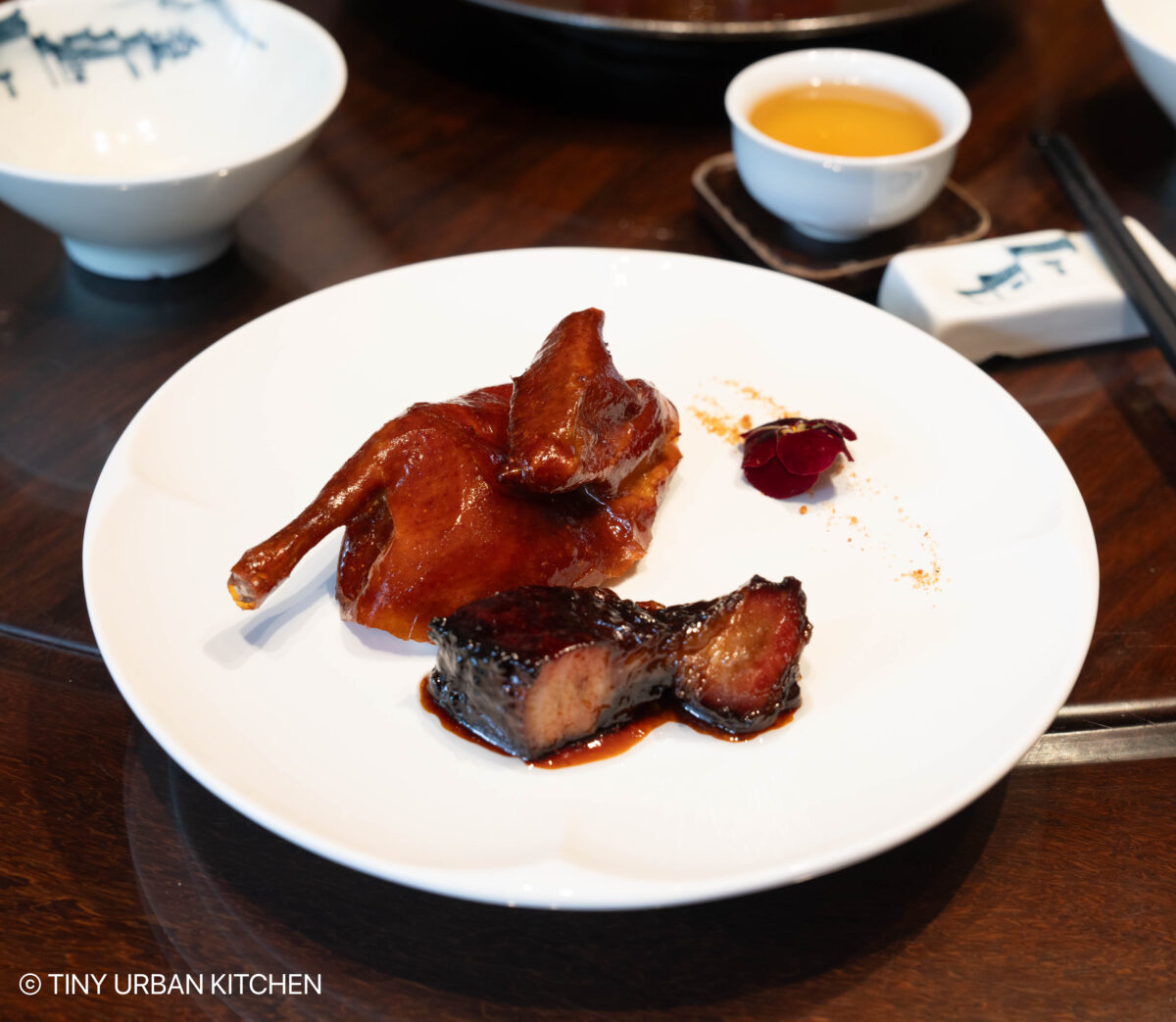
3. Congee Seafood Hot Pot
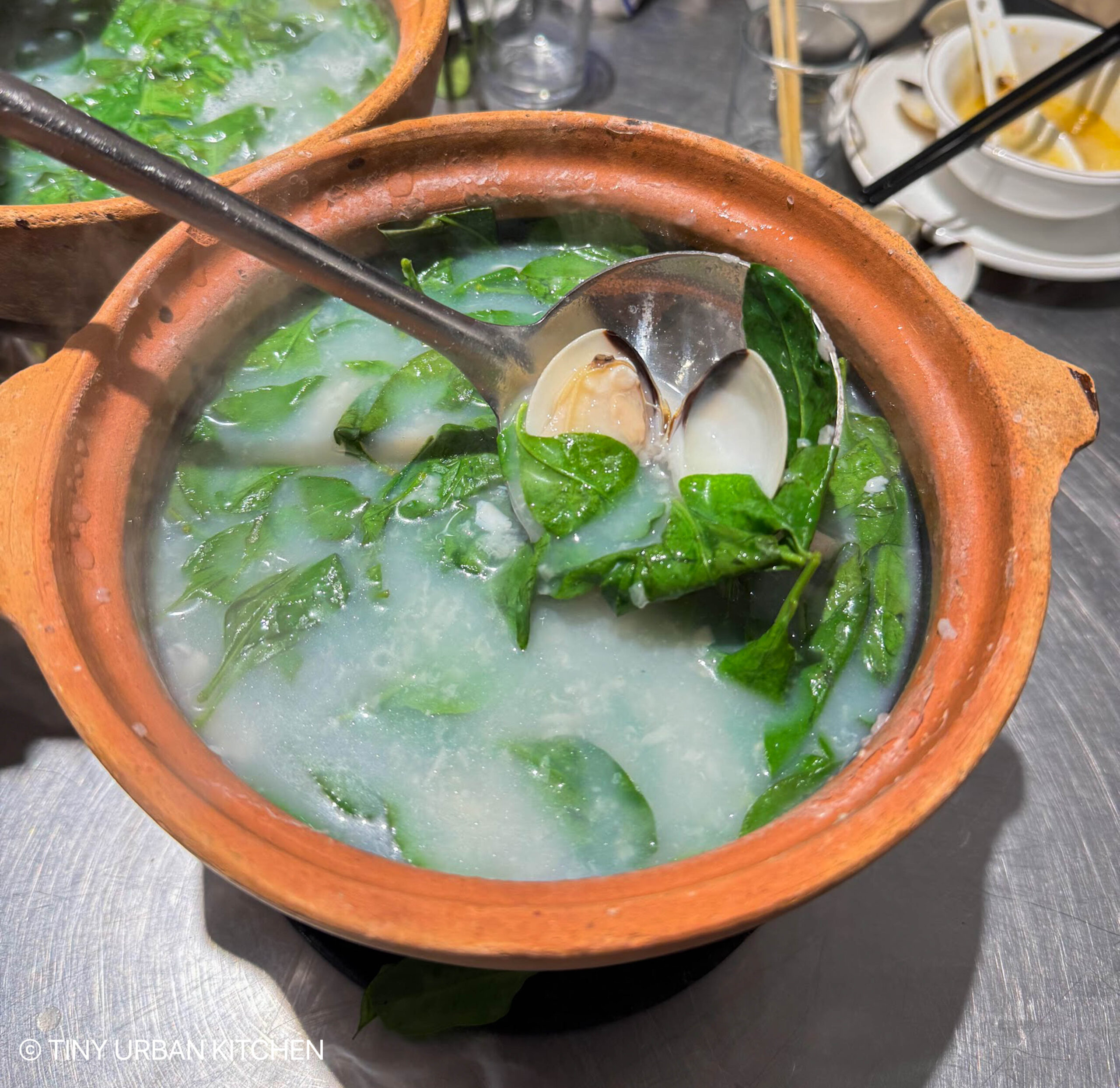
Another very famous dish Shunde's congee hot pot (順德粥底火鍋). This local specialty replaces broth with congee (rice porridge), which is made from slow-cooked rice. Diners cook a variety of fresh ingredients like sliced fish, seafood, meat, tofu, and vegetables directly in the congee, which absorbs the flavors and thickens as the meal progresses.
We ordered oysters, mud carp, "雞子“, and goji leaves! 雞子 (jī zǐ) is a bit of a nebulous word in Mandarin Chinese. Our good-intentioned Mainland friend (the wife of the couple we went with) told me that 雞子 was very nourishing, very "補" (bu) in Chinese medicine principals. "It's especially good for women" she said (indicating that the offal was kind of like an egg or related organs).
It wasn't until we ate several that she discovered that 雞子 is actually rooster testicles (!!!!). We had eaten some already. Frankly speaking, it's not all that bad, but maybe not AS good for women as she thought!
4. Double Skin Milk (Buffalo Milk) 民信 or 人信
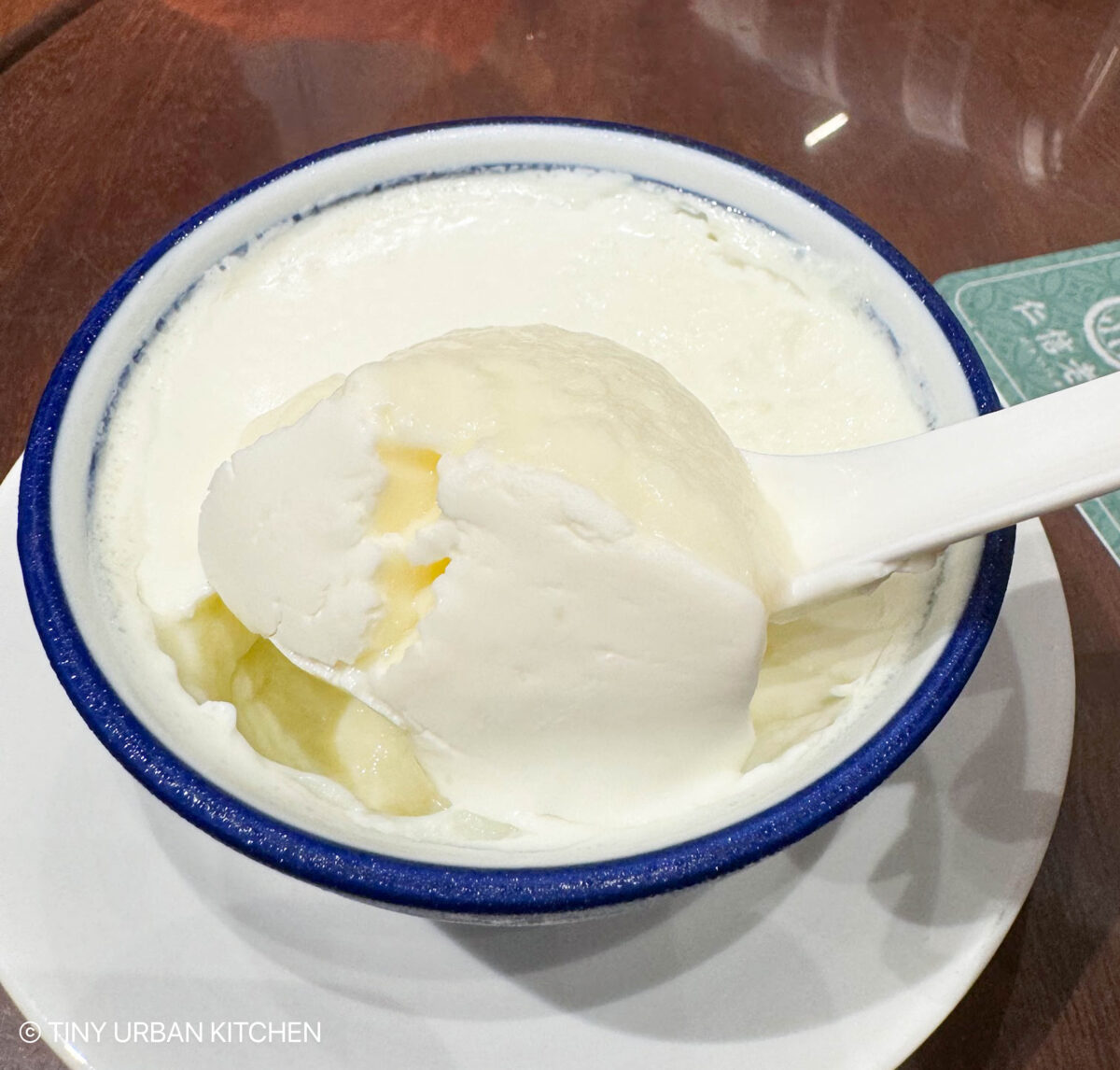
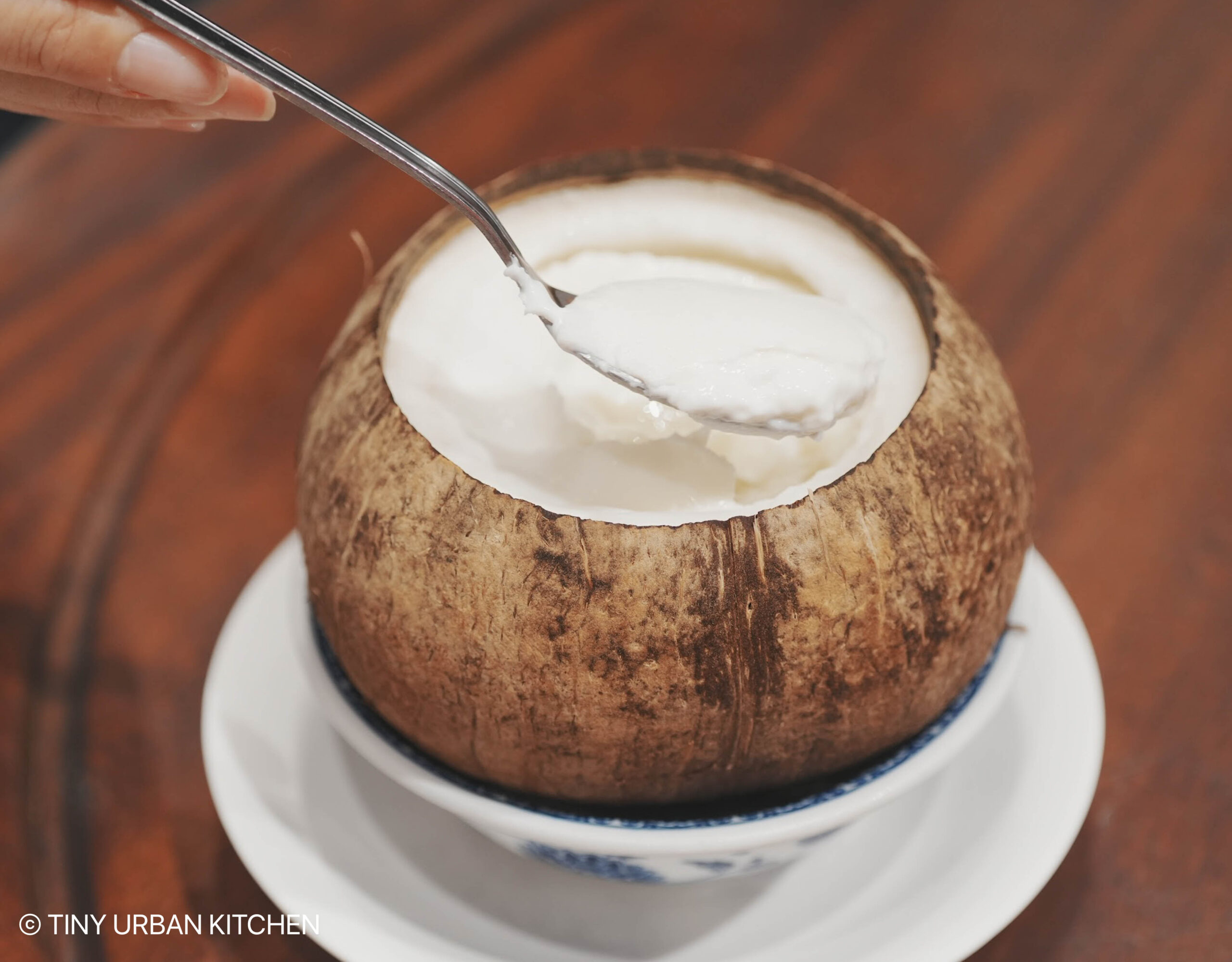
Another super famous dessert in Shunde is double skin milk (雙皮奶). The version in Shunde is unique because it's made from fresh buffalo milk. It's called double skin milk because of two layers of skin that form during the preparation process. After boiling, the milk is cooled, allowing a creamy skin to form on the surface. The milk is then mixed with sugar and egg whites, steamed, and topped with a second skin. The resultant "custard" is rich and creamy, easy to eat with a spoon.
They had many flavors, such as ginger and coffee, as well as toppings, such as red bean, peach gum, and boba.
We tried two different competing companies (owned by two brothers from the same family who split back in the 1930's) -- yes, these shops have a LONG history). Both are fine. 民信 (in business since 1925) is in a more central location. We had to walk a bit to reach 仁信, but overall liked it better. They also sold buffalo milk by the bottle, which our friend purchased.
5. Dim Sum at Dongcheng Nanji 東城南記酒樓

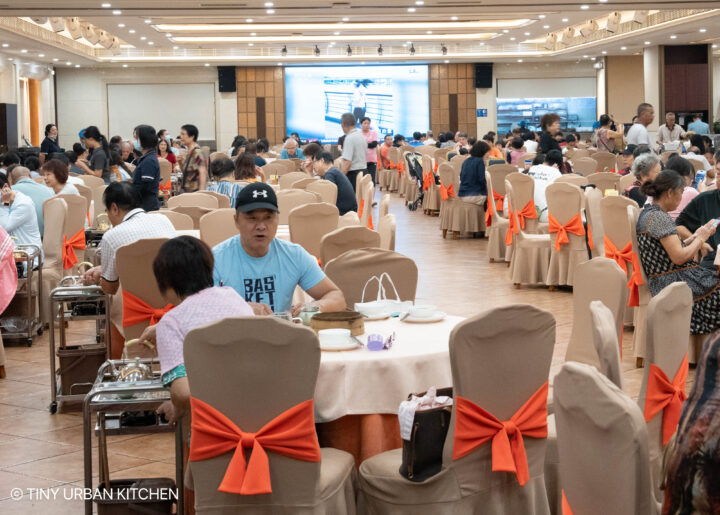
We visited a very famous traditional Shunde dim sum spot located in the Dongcheng Hotel. It was very, very similar to Hong Kong dim sum, since this is probably where it was born.
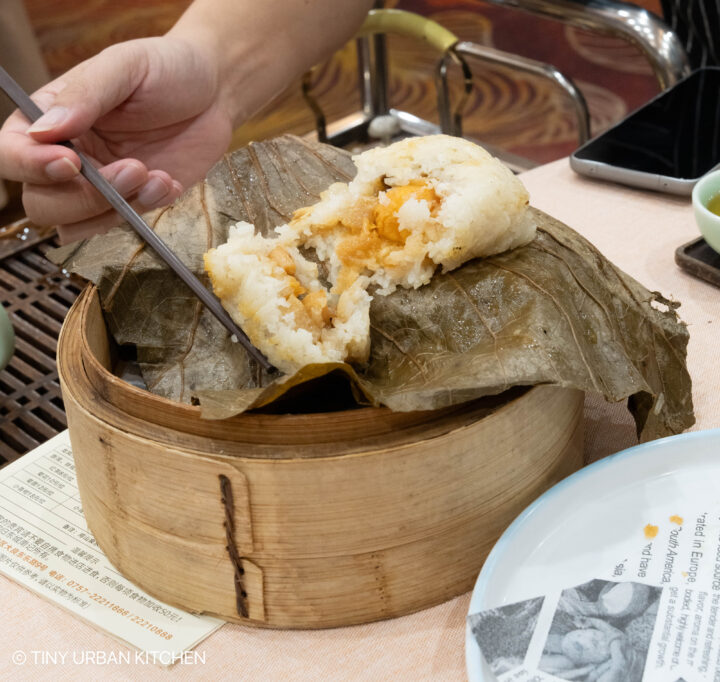

The practice of pushcarts is gone in most places, including here. However, the food was still quite good (though honestly, I don't think it's better than Hong Kong).

One unique aspect is that they do make some very very traditional dishes that you don't see in most modern dim sum restaurants anymore.
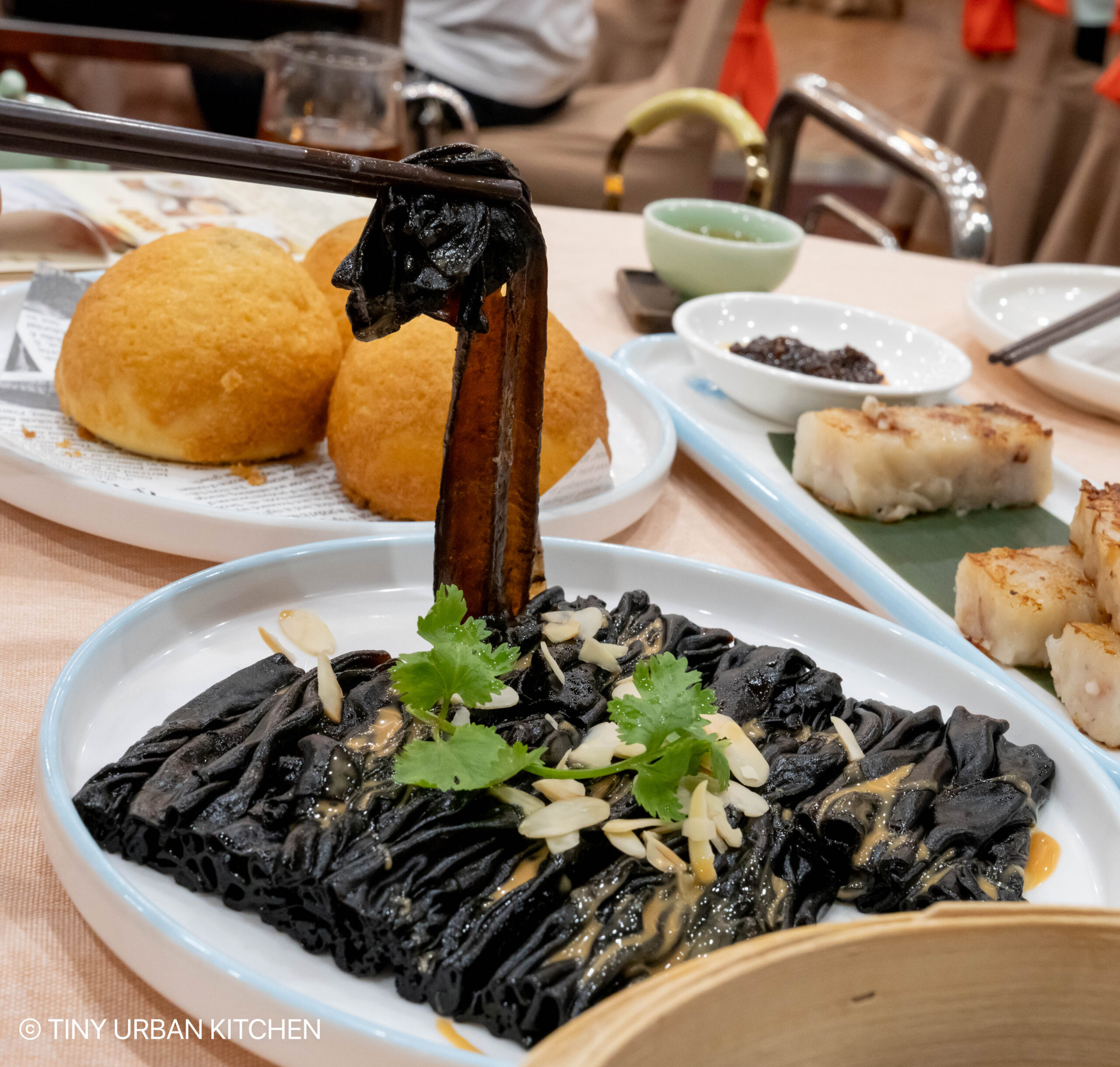
One example is black rice rolls (腸粉) made from 龜苓膏. 龜苓膏 (guī líng gāo) is a traditional Chinese herbal jelly. Traditionally it was made from a blend of tortoise shell (龜) and sarsaparilla root (土茯苓), along with other herbs. This dark, slightly bitter jelly is believed to have cooling properties that help detoxify the body and promote skin health. These days, it's really, really expensive to use tortoise shell, so I've heard most versions don't contain any actual tortoise. I'm a bit relieved at that. Since I grew up with a pet turtle (he's STILL alive!), it's one of the few animals I refuse to eat.
6. Steamed Rice Rolls w/ Roast Goose Jus 蒸腸粉陪燒鵝醬或油汁
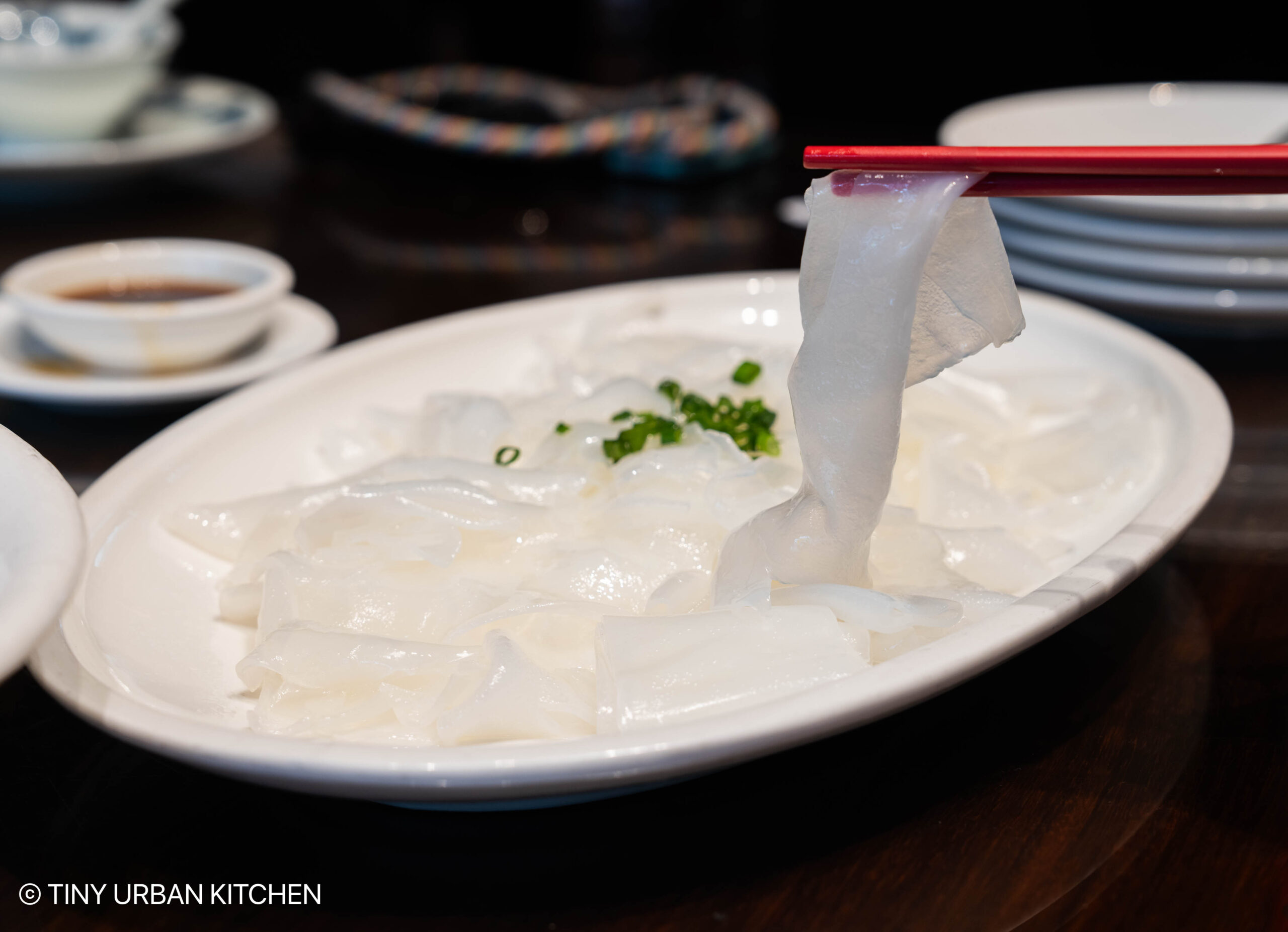
These freshly made rice rolls had such an amazing texture. They were a bit bouncy, QQ, and slippery at the same time. They gave us the option to dip it in either soy sauce or roast goose jus. Everybody agreed the roast goose jus was tastier.
7. Beef Offal 牛雜
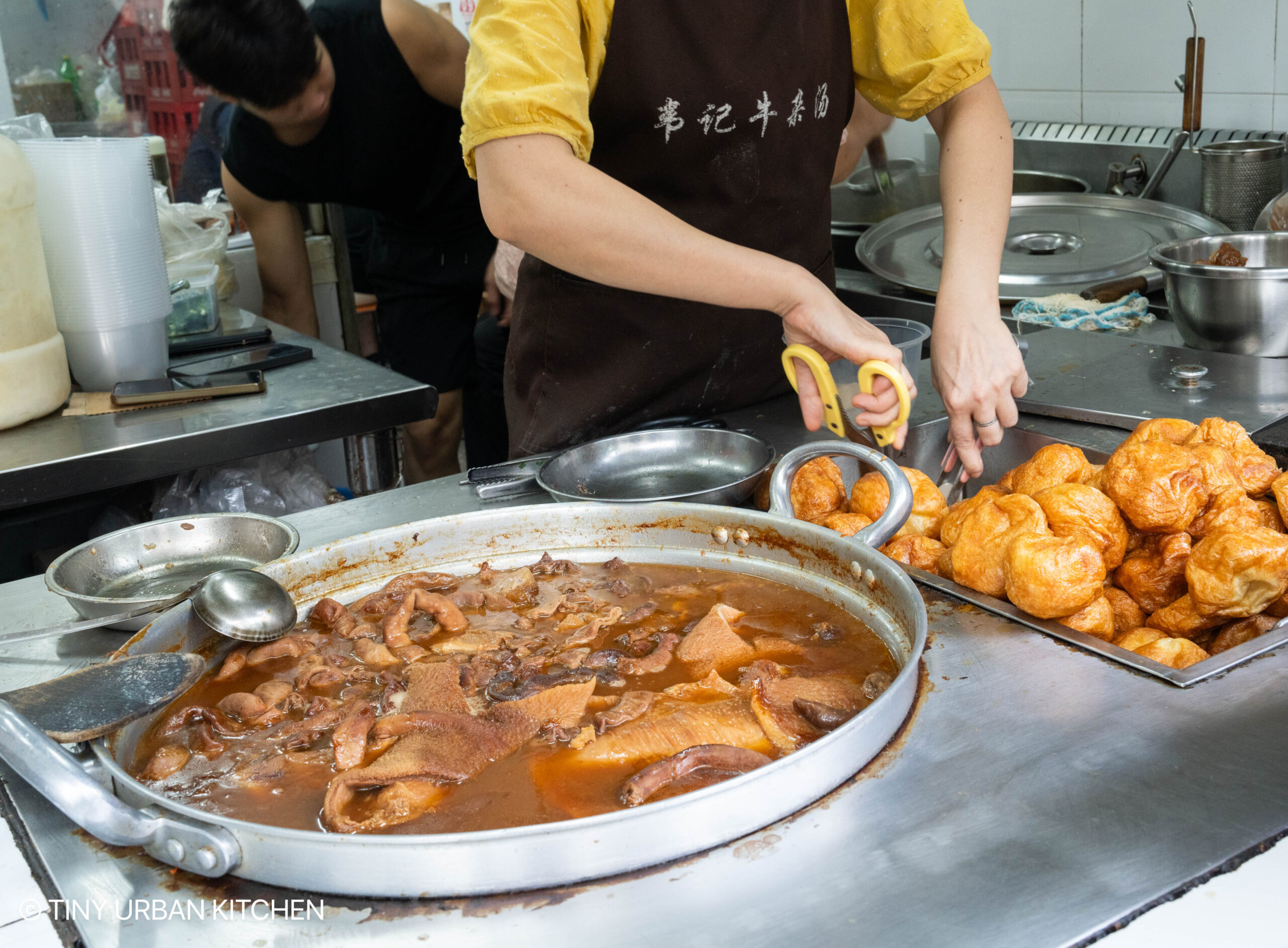
The Chinese are obsessed with beef offal, and will often line up for the best beef offal in town (we noticed this phenomenon when we were in Macau). In Shunde, beef offal stands are pretty common. They usually have a HUGE pot of a rich, flavorful broth (牛雜湯) in which they have slow cooked a variety of beef offal, such as tripe, intestines, lungs, and tendons for hours. Each shop's broth is different and has its own unique flavor.
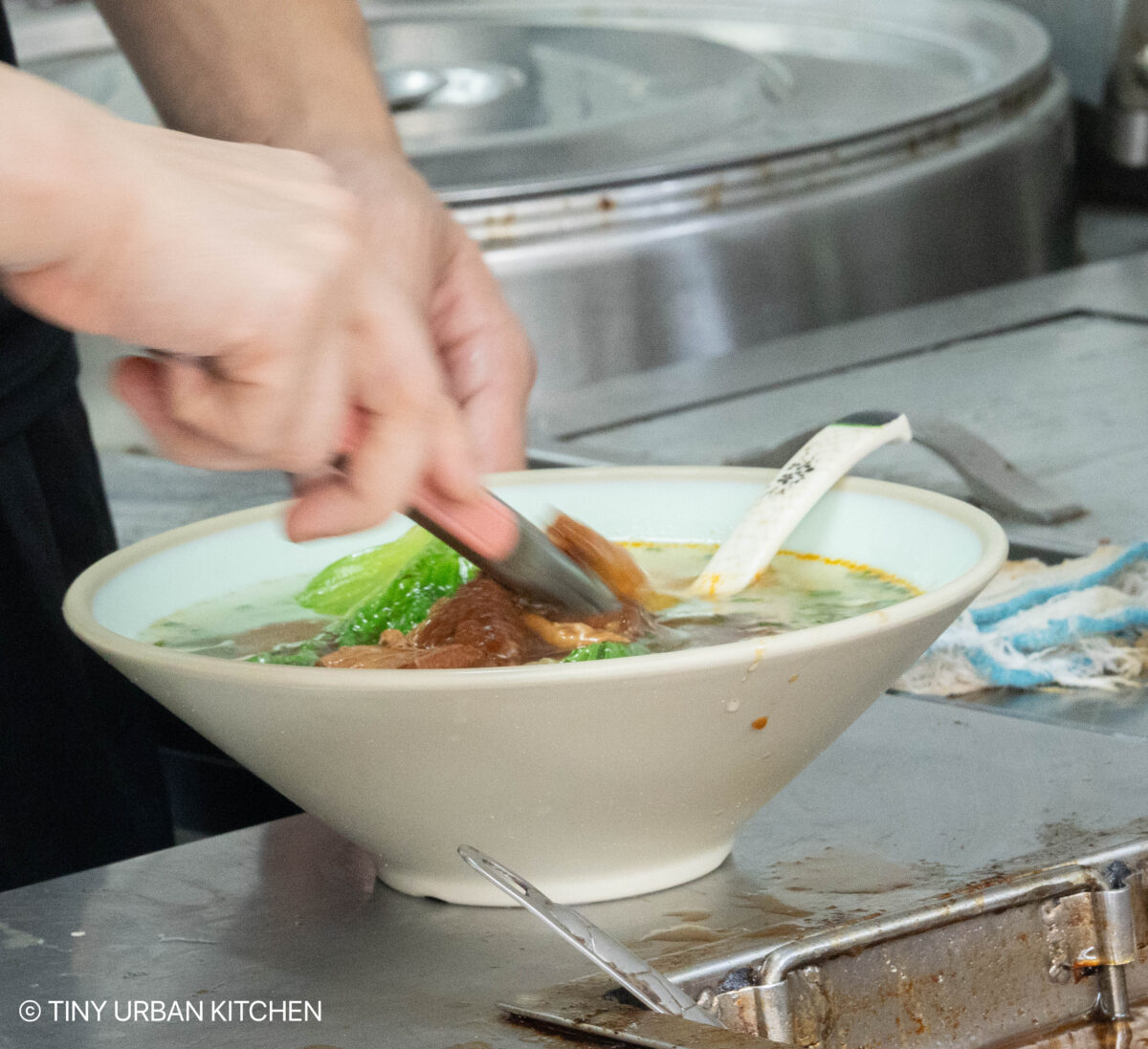
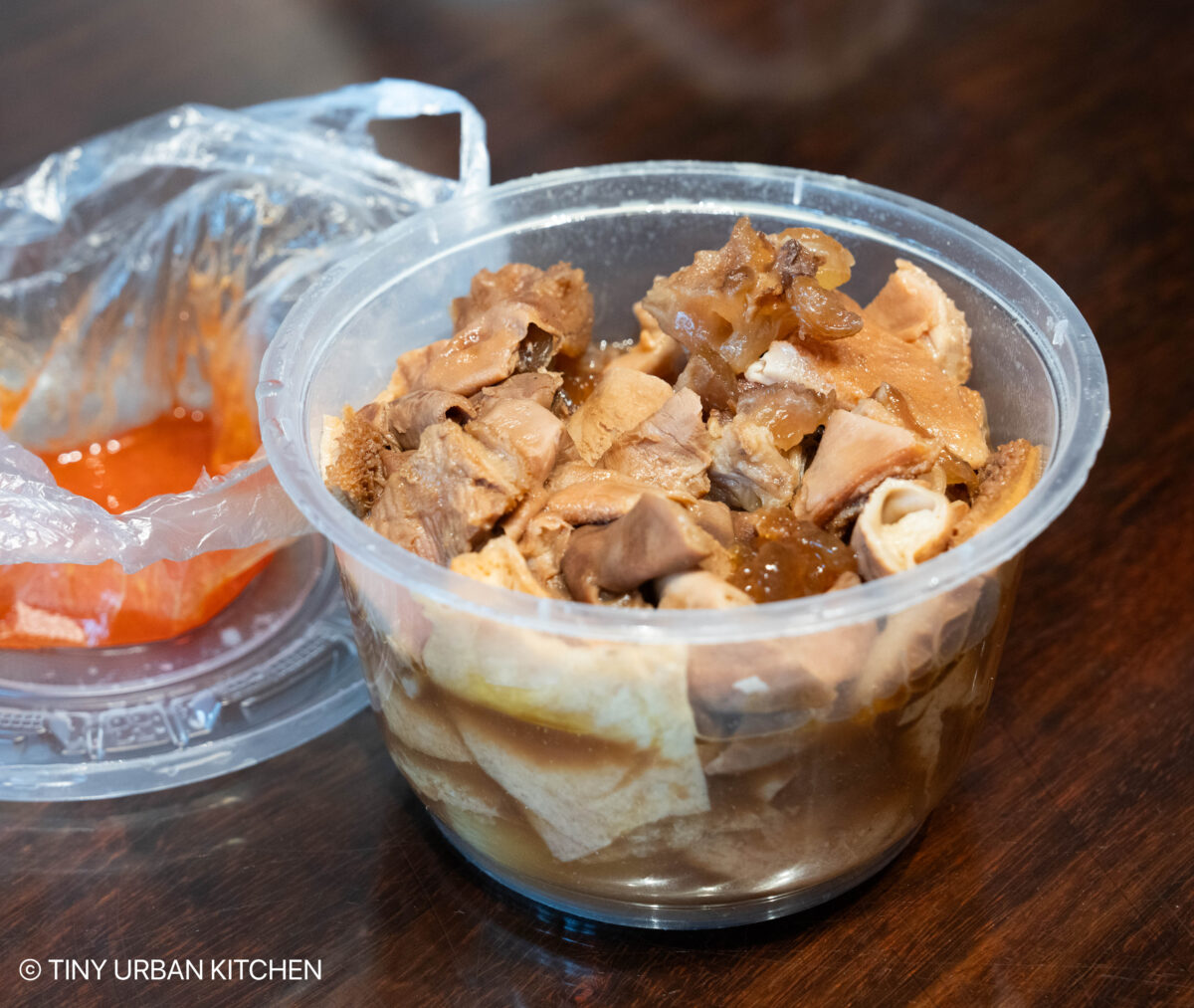
You can get a mixture, or you can pick out your favorites. I am personally a huge fan of tendon, but less excited about tripe, intestines, or lungs. Bryan, on the other hand, loves all things offal.
8. Coffee at 四囍Coffee or Hand-crushed Lemon Tea
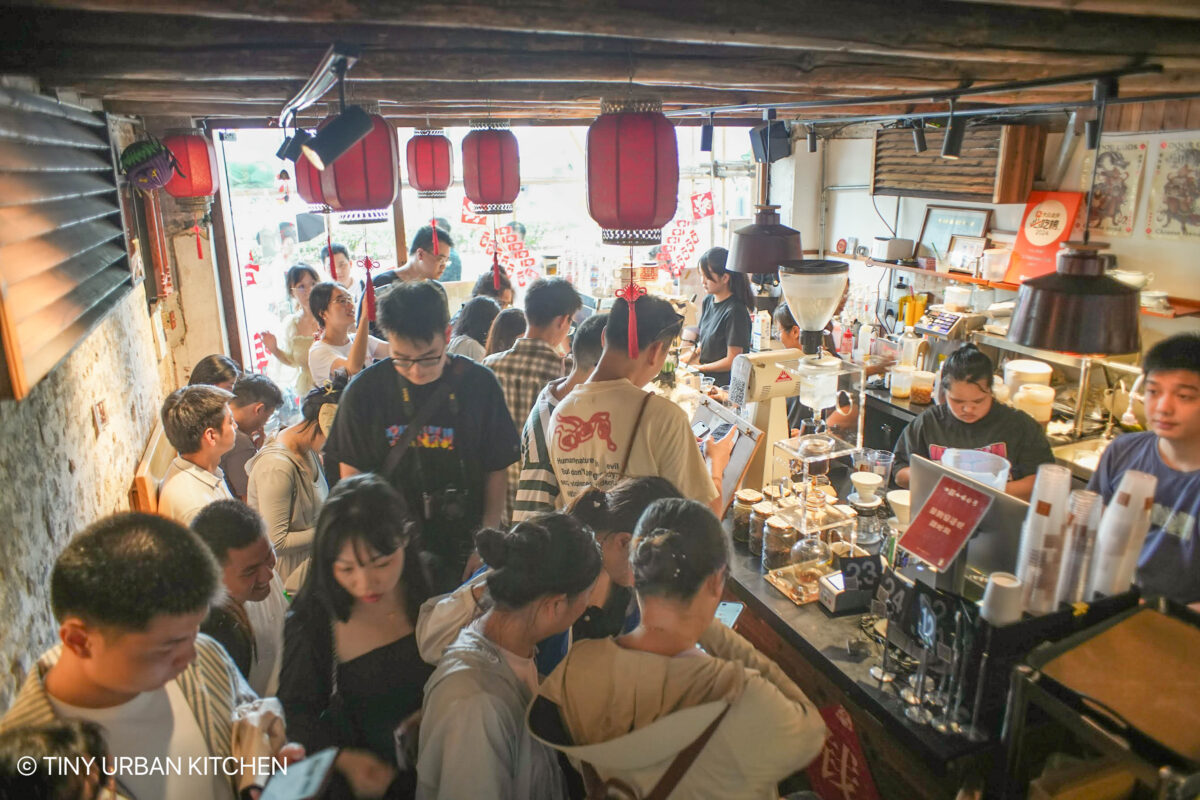
Coffee shops are pretty popular in China now, and certain places become MUST-SEES after being featured on social media, usually on Xiaohongshu(小紅書), China's parallel app that's kind of like Instagram (but not quite).
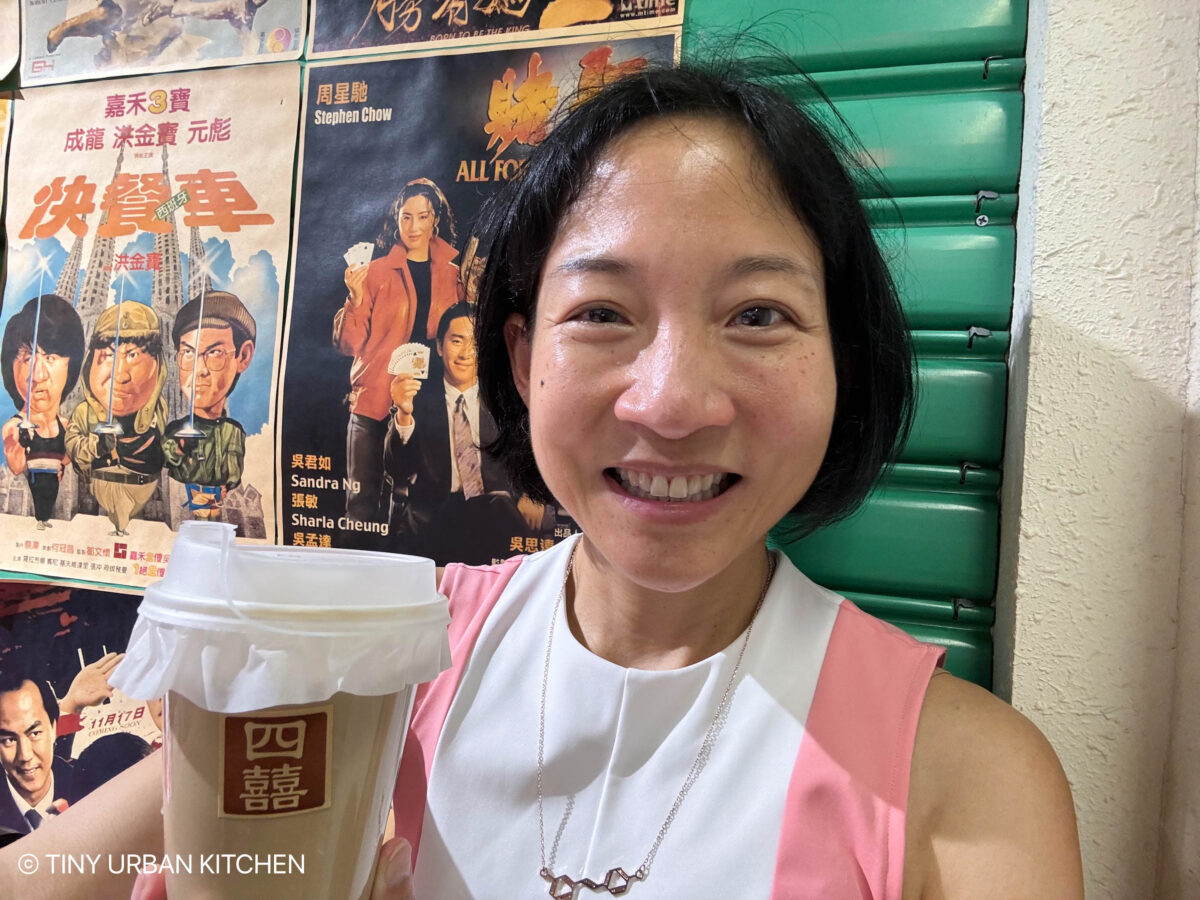
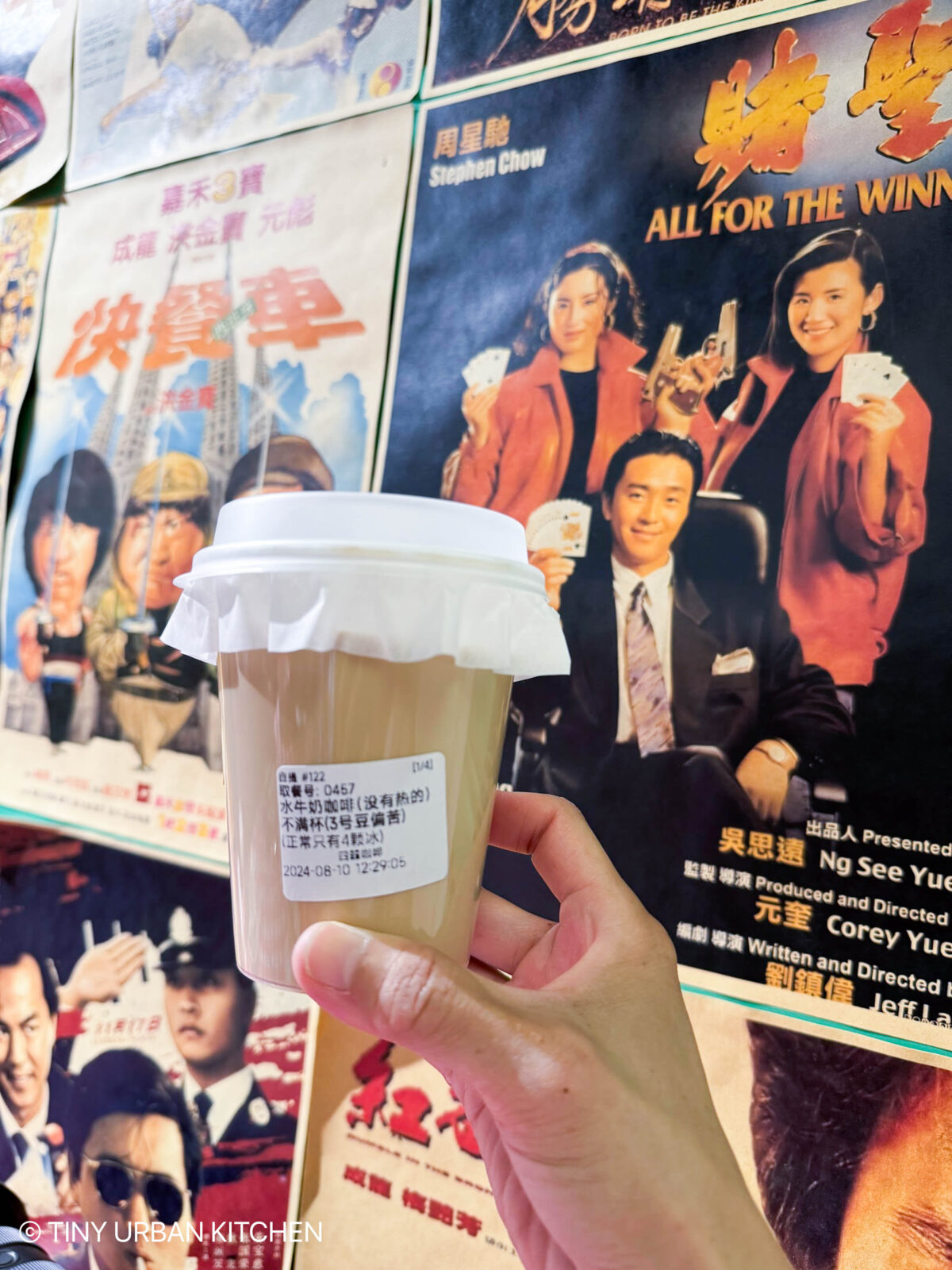
We joined the masses to line up at one of these internet sensation places, called 四囍咖啡公司 (Sixi Coffee Company). The coffee was very good, but not sure if was worth the 45 minute wait (!).
Hand crushed lemon tea has been super popular in China recently, and the trend even recently reached Hong Kong this past year. In Shunde, we also tried a refreshing (massive) cup of lemon tea. I liked how I could order a version with no sugar, and just enjoy the fragrance of the perfume lemons and brewed tea.
Other Shunde Specialities
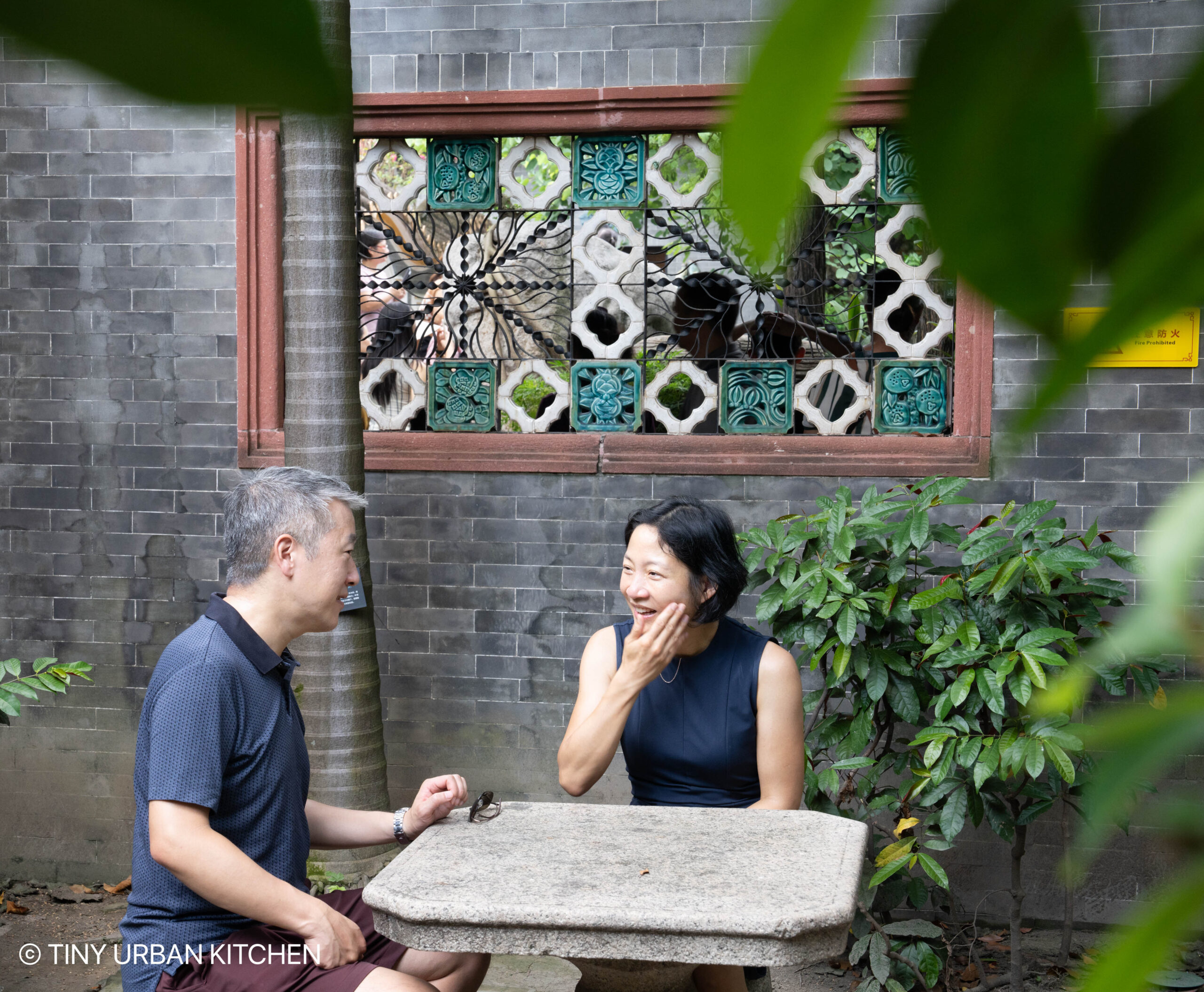
If you have a chance, also try the deep fried milk, which is a delicate, tofu-like dish made from milk and egg. I've had it in Shenzhen at a Shunde restuarant (it's delicious!), but I didn't have a chance to try it this trip.
And there you have it, many of the important classics to taste while in Shunde China. We only went for less than 48 hours, so there was a limit to what we could try. Still, I left the city totally blown away by the food, especially the raw fish salad, which I absolutely loved. I still think about it to this day . . .
Non-Food Excursions
I leave you with a few additional photos from some non-food parts of the trip from the He Art Museum and the streets of Shunde.
